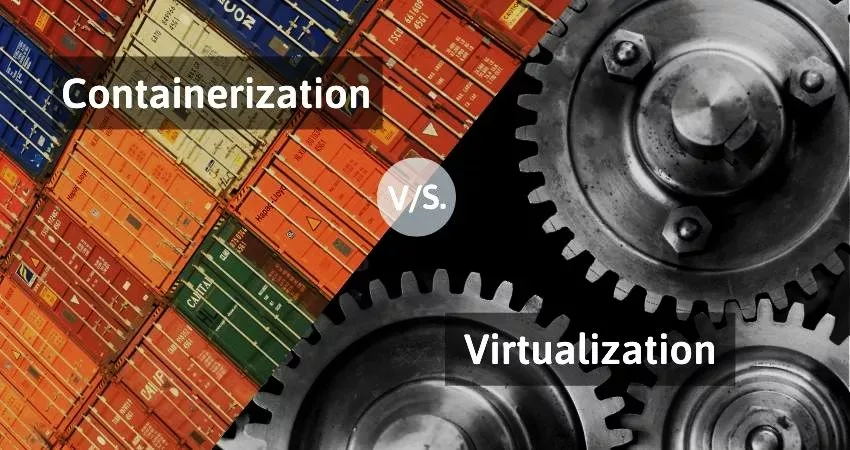Containerization vs. Virtualization, both, are methods of deploying many isolated services on the same platform.
But, the way both technologies function is different. Let’s understand both concepts before diving into the differences between them.
Virtualization is the process of developing virtual versions of operating systems, hardware platforms, storage devices, or computer network resources.
The virtual environment created is abstracted from the underlying hardware technology.
Virtualization also refers to the process of creating many instances of operating systems on the same computer.
These instances are called virtual machines. For the applications running over these virtual machines, it appears as if they are working on a system dedicated to that particular application.
The most common reason to use virtualization is to run applications meant for different operating systems on the same computer system, without having to change the system for individual apps.
Examples of virtualization tools include VirtualBox, Hyper-V, and VMWare Workstation Player, amongst many others.
Containerization involves bundling an application and the required operating system in its container so that the application is capable of being run on any infrastructure.
The application can then be run on different systems without having to worry about compatibility and dependencies.
Containerization can be considered as a lightweight alternative to full system virtualization. Each container simulates a different environment necessary for the application they are running.
Many containers share the same operating system even though they run different isolated applications.
Containerization allows developers to create applications faster without having to worry about bugs when the application is run on a computing environment different than the one on which it was developed.
Containerization tools include Kubernetes, Docker, Rocket, etc.
Virtual machines and containers are often compared with one another. Containerization is seen as an alternative or a companion to virtualization.
Although both systems are meant to simulate the environments required by individual applications, they work differently. Following are some points of difference between the two technologies:
While containers are an abstraction of the application layer, VMs are a simulation of the hardware layer.
This means that each container replicates the working of a different software application. But virtual machines, replicate the functioning of a physical machine.
For example, virtualization technology can use one physical server to simulate the working of many servers.
So even though the VMs use one single hardware infrastructure, they have their copy of the OS and related files, applications, etc.
One container can work with a single application while a VM can host many applications at a time. The combination of these applications might change over time.
This is because virtual machines simulate the entire physical system and the operating system, while containers are capable of capsulizing the resources required for the only application.
Since containers are created to run one application, they need fewer resources to run as compared to virtual machines.
Thus, in the same amount of computing resources, more containers can run as compared to VMs.
As seen earlier, containers encapsulate an application code together with the required libraries and dependencies needed to run it, they are generally smaller in size as compared to virtual machines.
This reduces the loading time of containers. But, virtual machines, simulate the entire operating environment and hence take more time to load.
Virtual machines provide complete isolation for all the applications they host and hence are more secure. Containers provide only process-level isolation and so are less secure, compared to virtual machines.
Conclusion
Considering all the differences above, it is quite safe to say that containers and virtual machines can’t necessarily be used interchangeably.
Each has its benefits and specific scenarios whereas the other does not provide practical application. It is dependent on the user as to which system works best for them in the current scenario, and then, they can choose between Containerization and Virtualization.
You May Also Like to Read:
5 Benefits of Desktop Virtualization
Kubernetes and Docker: Either or Both?

